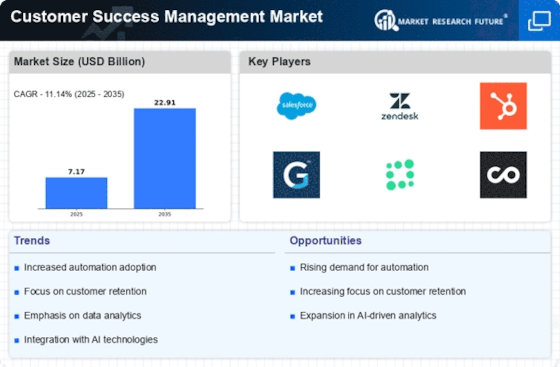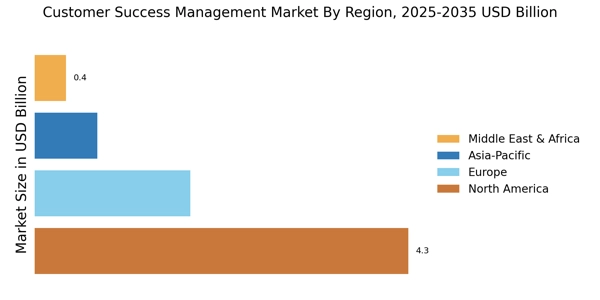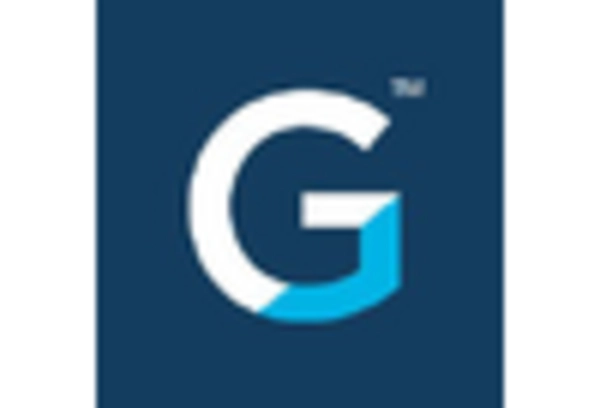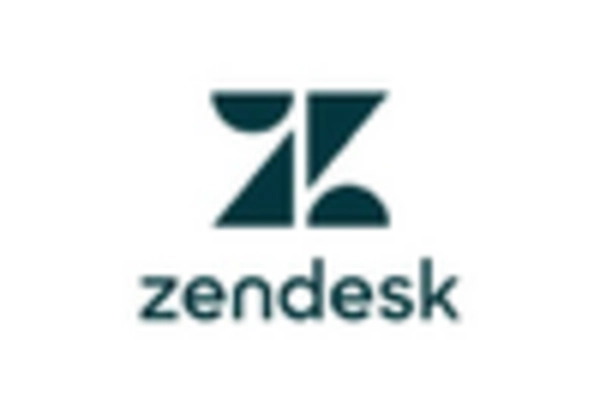Integration of Advanced Analytics
The integration of advanced analytics into the Customer Success Management Market is transforming how businesses understand and engage with their customers. By leveraging data analytics, organizations can gain insights into customer behavior, preferences, and pain points. This data-driven approach enables companies to tailor their services and proactively address customer needs. The market for analytics tools is expected to grow significantly, with estimates suggesting a compound annual growth rate of over 20% in the coming years. As businesses increasingly rely on data to inform their customer success strategies, the demand for analytics-driven solutions within the industry is anticipated to expand.
Increased Focus on Customer Retention
The Customer Success Management Market is witnessing a pronounced emphasis on customer retention strategies. Companies are increasingly recognizing that retaining existing customers is often more cost-effective than acquiring new ones. This shift is reflected in the growing investment in customer success initiatives, which are projected to reach approximately 1.5 billion dollars by 2026. Organizations are adopting customer success platforms to enhance engagement and satisfaction, thereby reducing churn rates. As businesses strive to build long-term relationships with their clients, the demand for effective customer success management solutions is likely to surge, indicating a robust growth trajectory for the industry.
Rise of Subscription-Based Business Models
The rise of subscription-based business models is reshaping the Customer Success Management Market. As more companies adopt this model, the need for effective customer success strategies becomes paramount. Subscription services require ongoing engagement and support to ensure customer satisfaction and retention. This trend is evidenced by the increasing number of businesses transitioning to subscription models, with estimates indicating that over 70% of software companies now operate on a subscription basis. Consequently, the demand for customer success management solutions that can facilitate these ongoing relationships is likely to grow, driving innovation and investment in the industry.
Emphasis on Customer Experience Enhancement
Enhancing customer experience has emerged as a critical driver in the Customer Success Management Market. Organizations are increasingly prioritizing customer experience as a key differentiator in competitive markets. This focus is reflected in the growing adoption of customer success platforms that facilitate personalized interactions and support. Research indicates that companies investing in customer experience initiatives can achieve revenue growth rates of up to 5.1 times higher than those that do not. As businesses strive to create seamless and engaging experiences for their customers, the demand for effective customer success management solutions is expected to rise, indicating a positive outlook for the industry.
Growing Importance of Customer Feedback Mechanisms
The growing importance of customer feedback mechanisms is significantly influencing the Customer Success Management Market. Companies are increasingly recognizing that understanding customer sentiments is vital for improving products and services. Feedback loops enable organizations to gather insights directly from customers, allowing for timely adjustments and enhancements. The market for customer feedback tools is projected to expand, with estimates suggesting a growth rate of around 15% annually. As businesses strive to foster a culture of continuous improvement and responsiveness, the demand for customer success management solutions that incorporate feedback mechanisms is likely to increase, shaping the future of the industry.

















